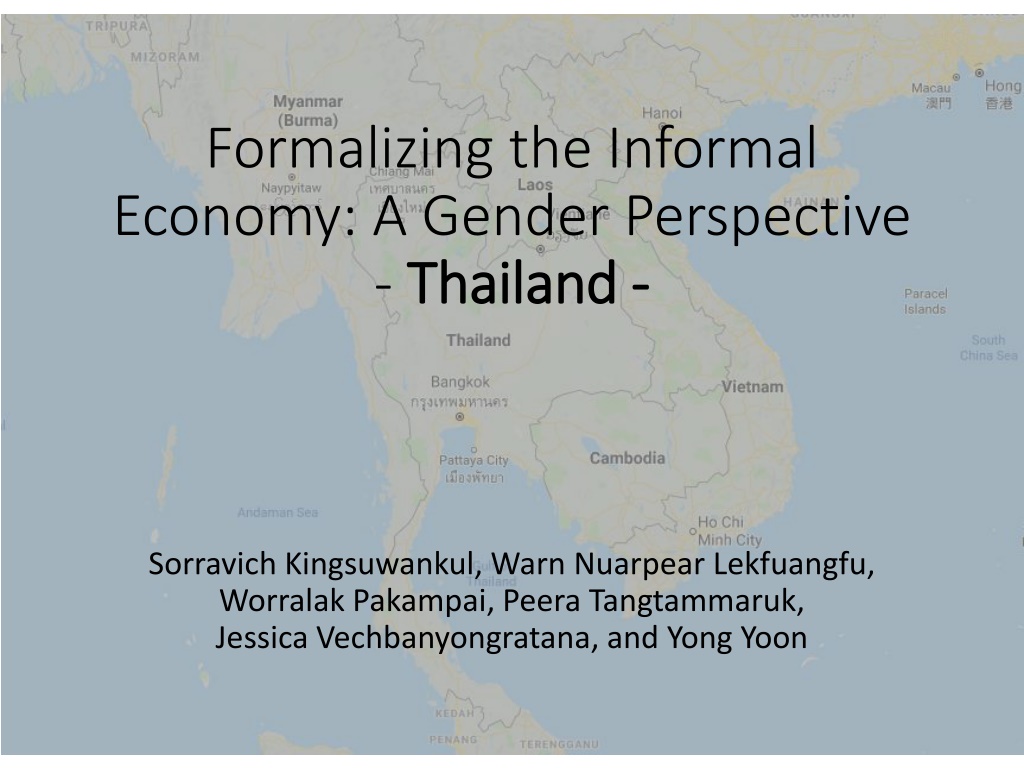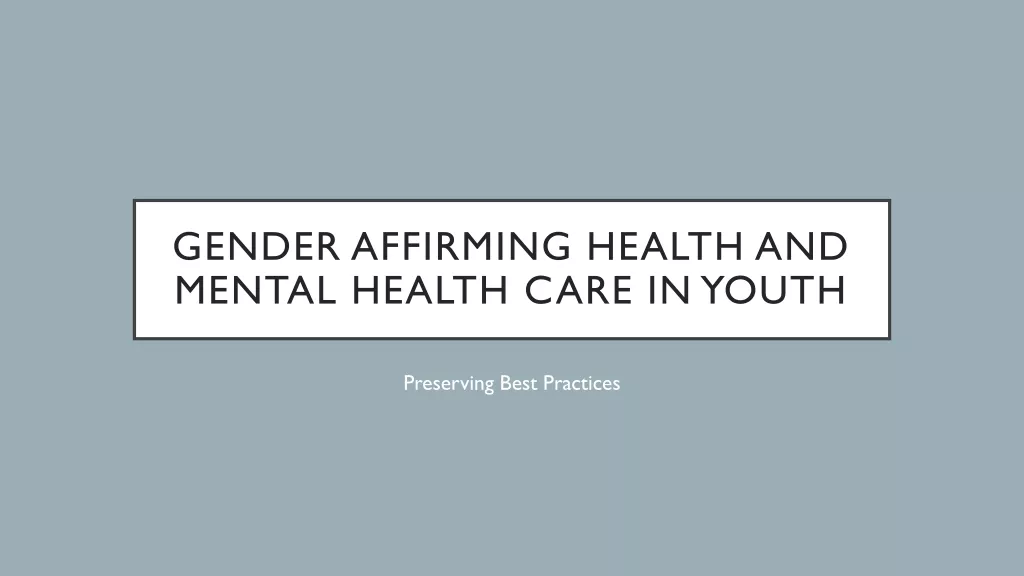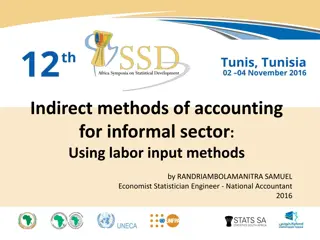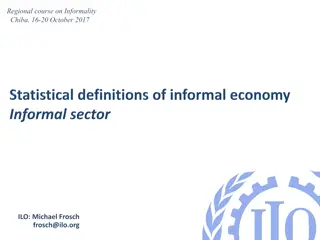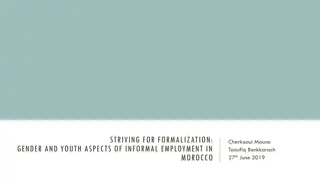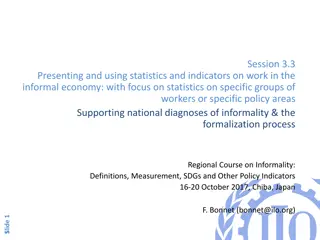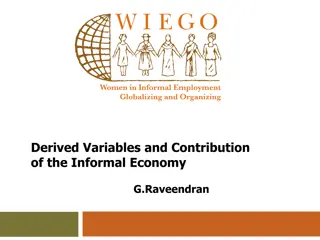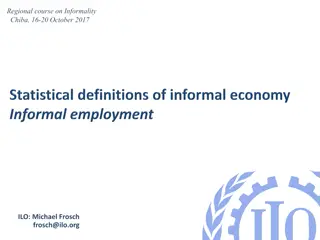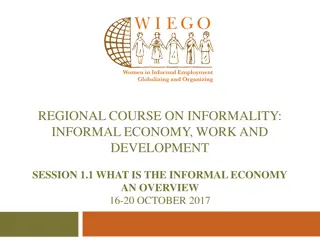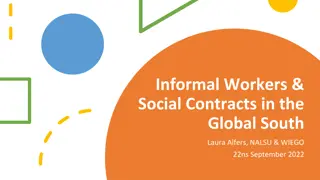Formalizing the Informal Economy: A Gender Perspective in Thailand
Thailand has seen rapid economic development transforming its economy. Despite a large informal labor market, efforts have been made to formalize it with labor laws, social protection, and defining formal employment. The gender perspective is crucial in understanding and addressing informal economy challenges.
Download Presentation

Please find below an Image/Link to download the presentation.
The content on the website is provided AS IS for your information and personal use only. It may not be sold, licensed, or shared on other websites without obtaining consent from the author. Download presentation by click this link. If you encounter any issues during the download, it is possible that the publisher has removed the file from their server.
E N D
Presentation Transcript
Formalizing the Informal Economy: A Gender Perspective - Thailand Thailand - - Sorravich Kingsuwankul, Warn Nuarpear Lekfuangfu, Worralak Pakampai, Peera Tangtammaruk, Jessica Vechbanyongratana, and Yong Yoon
Thailand Overview Rapid economic development: Transformed from agricultural to manufacturing/service based economy since 1980s Expansion of compulsory and free education since the 1970s Middle-income country (per capita income $7,000 or $19,000 ppp) Current labor statistics: Population of 68 million; 38 million people in the labor force Labor force participation rates (age 15+) Men = 76% Women = 60% Unemployment rate = 1% Despite this, Thailand s labor market is largely informal!
Formalizing Labor Laws and Regulations Labour Protection Act B.E. 2541 (1998) Social Security Act, B.E. 2533 (1990) Section 33 Employer provided social security by law Section 39 Voluntary scheme for those who left employment covered by Section 33 Section 40 Voluntary scheme for informally and self- employed Other Prompt-Pay for cashless transactions targeted at informal vendors who are predominantly female
Thai Governments Definition of Formal Employment All civil servants All state enterprises employees Private school principals or teachers, according to the law governing private schools. Employees who have protection under Labour Legislation Workers who are insured according to Social Security Act B.E. 2533 (1990), Sections: 33, 39, 40
Social Protection in the Informal Economy Universal Healthcare (UCS or 30 baht healthcare) provides comprehensive health coverage for a nominal charge. Universal Non-contributory Old-age Pension (Bt 600-1000 per month) Poor Card cash card used to purchase necessities and transportation Free education up to age 17 Optional Social Security (Section 40) Pension Invalidity Death Child payment
Incidence of Informality, 2011-2016 & Mean monthly earning 2016 (Baht)
Male-Female Wage Gap (All Workers Earning Labor Income) 14% 12% 10% 8% 6% 4% 2% 0% -2% -4% -6% 2001 2002 2003 2004 2005 2006 2007 2008 2009 2010 2011 2012 2013 2014 2015 2016 Unweighted Weighted
Formal vs. Informal Gender Wage Gap Male-Female Wage Gap 16% 14% 12% 10% 8% 6% 4% 2% 0% -2% 2011 2012 2013 2014 2015 2016 formal informal
Formal and Informal Monthly Labor Earnings (Private Firms) 16,000 14,000 12,000 10,000 8,000 6,000 4,000 2,000 0 2011 2012 2013 2014 2015 2016 Formal Informal Minimum Wage
Three Case Studies Domestic Workers Manufacturing Sex Work
Domestic Work Incidence of Informality Domestic cleaners and helpers working in homes 100% 90% Formal 44.5 8,330 46 Informal 50.0 8,354 41 Hours Worked per Week Monthly Labor Income Hourly Wage 80% 70% 60% 50% 40% Cleaners and helpers working in offices and hotels 30% 20% Formal 46.8 9,013 49 Informal 45.3 7,513 42 10% Hours Worked per Week Monthly Labor Income Hourly Wage 0% Domestic cleaners and helpers working in homes Cleaners and helpers working in offices and hotels Formal Informal Minimum Wage = 37.5 baht per hour Source: Labor Force Surveys, 2011-16
Domestic Work Why do women choose to work in informal settings when formal cleaning work is available? Even though work hours are long, employers provide flexibility to take care of personal business and give annual leave/sick leave. Tasks are easier and there is less pressure. Access to informal credit through employer No transportation or living costs (for live-in workers)
Sex Work Sex industry in Thailand (2015) is estimated to be worth US$6.4 billion a year in revenue, accounting for 3% of GDP Caters to both international tourists and domestic persons Sex Workers Workers in Bangkok predominantly from North and Northeastern Thailand Workers in the provinces predominantly come from neighbouring countries. Prevention and Suppression of Prostitution Act 2539 (1996) and Article 286 of the Criminal Code make selling sex illegal (but not buying sex) in Thailand.
Sex Work Sex workers can be classified as venue-based sex workers, meaning they work in massage parlors, spas, and other entertainment venues and/or non-venue based sex workers Establishments are legally registered businesses sex workers (a.k.a. service providers ) are covered by social security and are considered formal. It is common policy to have sex worker undergo health tests (incl. HIV) every 3 months. Technically covered by Labour Law Access to national health coverage But, given that selling sex is illegal, workers often cannot access the Labour Law because of risk of prosecution. Vulnerable to harassment and sexual abuse by employers and customers.
Conclusions Thailand has high demand for (female) workers for (lower) skilled work in the formal sector, but many choose to work in the informal sector Flexibility (esp. to tackle family responsibilities) Less pressure at work place Social networks Already have access to social protection Blanket formalization policies is not suitable Do not take into consideration preferences for informal working environment that are more compatible with (female) caring roles In sex industry, social stigma may actually drive some activities further underground if legalized
